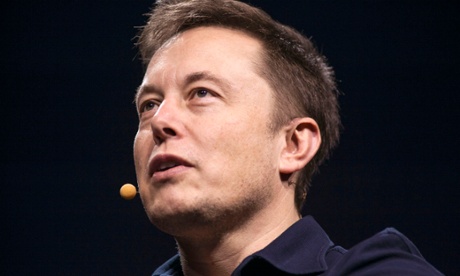
Tesla chief executive Elon Musk thinks that once self-driving cars become widely used, traditional human-driven vehicles may need to be banned.
“It’s too dangerous. You can’t have a person driving a two-tonne death machine,” said Musk during an appearance at Nvidia’s annual developers conference, where he discussed Tesla’s ambitionsfor autonomous-cars.
Musk suggested that any wholesale switch from human-driven to self-driving cars could take 20 years, because of the sheer scale of the challenge in replacing cars already on the roads.
“I think it is important to appreciate the size of the automotive industrial base. There’s two billion of them,” he told The Verge.
Tesla is known for its electric cars, but the company is also determined to develop autonomous cars too. It has already unveiled an autopilot mode for its Model S vehicle, making it capable of changing lanes and self-parking.
“Tesla is the leader in electric cars, and we’ll also be the leader in autonomous cars. If anyone is interested in working on autonomous cars, we’d love to have you at Tesla. It’s going to be the default thing and save a lot of lives,” Musk told VentureBeat.
The Tesla boss went on to claim that the evidence is already “overwhelming” that autonomous cars will be safer than human-driven cars, although he admitted that his industry will have to convince governments and regulatory authorities of this.
Musk says the biggest challenge for autonomous vehicles is not high-speed motorways, but navigating urban streets safely at speeds of between 15mph and 50mph. “It’s the intermediate that’s hard,” he said.
Artificial intelligence technology is a key factor here, but Musk has been one of the high-profile figures from the tech world raising concerns about the future impact of AI in other areas, suggesting in October 2014 that it could be the “biggest existential threat” to humanity if not regulated carefully.
However, the AI that will be used for self-driving cars is not giving him sleepless nights. “I don’t think we have to worry about autonomous cars, because that’s sort of like a narrow form of AI,” said Musk at the Nvidia event.
“It would be like an elevator. They used to have elevator operators, and then we developed some simple circuitry to have elevators just automatically come to the floor that you’re at … the car is going to be just like that.”
Of more concern is the prospect of autonomous vehicles being targeted by hackers, with Tesla already investing in security technologies to try to fend them off in the future. “We’ve put a lot of effort into that, and we’ve had third parties try to hack it,” said Musk.

